Trying to get pregnant? If you’ve been trying for months without success, your thyroid might be the missing piece - not because it’s broken, but because it’s not quite where it needs to be. Many women don’t realize that even a slightly off thyroid can make conception harder, increase the risk of early miscarriage, or affect how well the baby develops in the first weeks of pregnancy. The key number doctors look at is TSH - thyroid-stimulating hormone. And before you start trying, this number should be lower than most people think.
Why TSH Matters More Than You Think
Your thyroid is a small butterfly-shaped gland in your neck that makes hormones controlling your metabolism, energy, and yes - your reproductive system. When it’s not working right, it can mess with ovulation, hormone balance, and even the lining of your uterus. The hormone that tells your thyroid to wake up and do its job? TSH. High TSH means your thyroid is struggling. Even if your TSH is in the "normal" range according to your lab report, it might still be too high for pregnancy. The American Thyroid Association says women planning to conceive should aim for a TSH level under 2.5 mIU/L. That’s not the same as the general population range (which can go up to 4.0 or even 4.5). For pregnancy, you need to be in the sweet spot - low enough to give your baby the best start. Studies show women with TSH levels above 2.5 are nearly twice as likely to have unexplained infertility compared to those with lower levels. It’s not a guarantee you won’t get pregnant, but it’s a risk you can fix.What If You Already Have Hashimoto’s?
If you’ve been diagnosed with Hashimoto’s thyroiditis - the most common cause of underactive thyroid - your target gets even stricter. Because your immune system is already attacking your thyroid, your body has less reserve to handle the extra demands of pregnancy. In early pregnancy, your baby relies entirely on your thyroid hormones for brain development until about 12 weeks. That means you need to be extra careful before you even get pregnant. Experts recommend women with Hashimoto’s aim for a TSH between 1.25 and 1.75 mIU/L before conception. That’s about half of the general preconception target. Why? Because once you’re pregnant, your body’s need for thyroid hormone jumps 25-50%. If you’re already running low before conception, you’ll likely crash in the first trimester - and that’s when the baby’s brain is forming. A 2023 study from the American Thyroid Association found that women who started pregnancy with TSH above 2.0 had significantly higher rates of early miscarriage, even if they were on medication.Screening and Testing: Who Needs It?
The American Society for Reproductive Medicine (ASRM) recommends that every woman going through fertility treatment get her TSH checked. That’s not just for those with symptoms - fatigue, weight gain, dry skin, irregular periods. Many women with thyroid issues feel fine. The only way to know is to test. If you’re not in fertility care but planning to conceive, ask your doctor for a TSH blood test. Don’t wait for symptoms. A simple blood draw is all it takes. If your TSH is above 2.5, or if you have thyroid antibodies (like TPOAb), you should be referred to an endocrinologist or reproductive specialist. You don’t need to have full-blown hypothyroidism to need help. Subclinical hypothyroidism - where TSH is high but thyroid hormone levels are still normal - is enough to impact fertility.
Levothyroxine: The Right Treatment, the Right Way
If your TSH is too high, the standard treatment is levothyroxine - a synthetic version of the thyroid hormone your body should be making. It’s safe, cheap (usually $4-$10 a month), and works well when taken correctly. But here’s where things go wrong: many women start on the wrong dose, or their dose isn’t adjusted after conception. A 2019 study found only 37% of women with hypothyroidism got their dose increased after they became pregnant. That’s dangerous. Your body needs more thyroid hormone as soon as you conceive. Without it, your baby’s brain development can be affected. Your doctor should increase your dose by 25-50% as soon as pregnancy is confirmed. That’s why you need to test TSH every 4 weeks during preconception and the first half of pregnancy. It takes about 6 weeks for your body to stabilize on a new dose, so don’t rush. Wait for the blood test before changing anything. And here’s a big one: don’t take levothyroxine with food, coffee, calcium, or iron. Take it on an empty stomach, with water, at least 30-60 minutes before eating. These things block absorption. If you’re taking prenatal vitamins with iron or calcium, take them at night - at least 4 hours apart from your thyroid pill.What About Other Thyroid Treatments?
Some people turn to natural thyroid extracts like Armour Thyroid because they’re "more natural." But here’s the truth: they’re not recommended during preconception or pregnancy. Why? Because they contain both T3 and T4, and T3 levels can spike unpredictably. That’s risky for a developing baby. The American Society of Reproductive Medicine and InVia Fertility Center both warn against using desiccated thyroid products when trying to conceive. Stick with levothyroxine. It’s the gold standard for a reason.The Controversy: Is 2.5 Too Low?
Not everyone agrees on the 2.5 target. A 2017 study of women undergoing IUI found no difference in pregnancy or miscarriage rates between those with TSH under 2.5 and those up to 4.5. That’s why some doctors say: "If you’re ovulating and your hormones look good, why worry?" But here’s the catch: that study looked at women who were already in treatment for infertility. It didn’t look at the broader population trying naturally. Other large studies - including one tracking over 180,000 women - found a clear link between TSH above 2.5 and higher miscarriage rates. The odds of losing a pregnancy went up by 15%. Also, if you have thyroid antibodies (even with normal TSH), your risk of miscarriage is still higher. A 2023 ASRM review found that treating these women with levothyroxine reduced miscarriage rates by 45% and improved live birth rates by 36%. That’s huge. And it’s not just about getting pregnant - it’s about staying pregnant.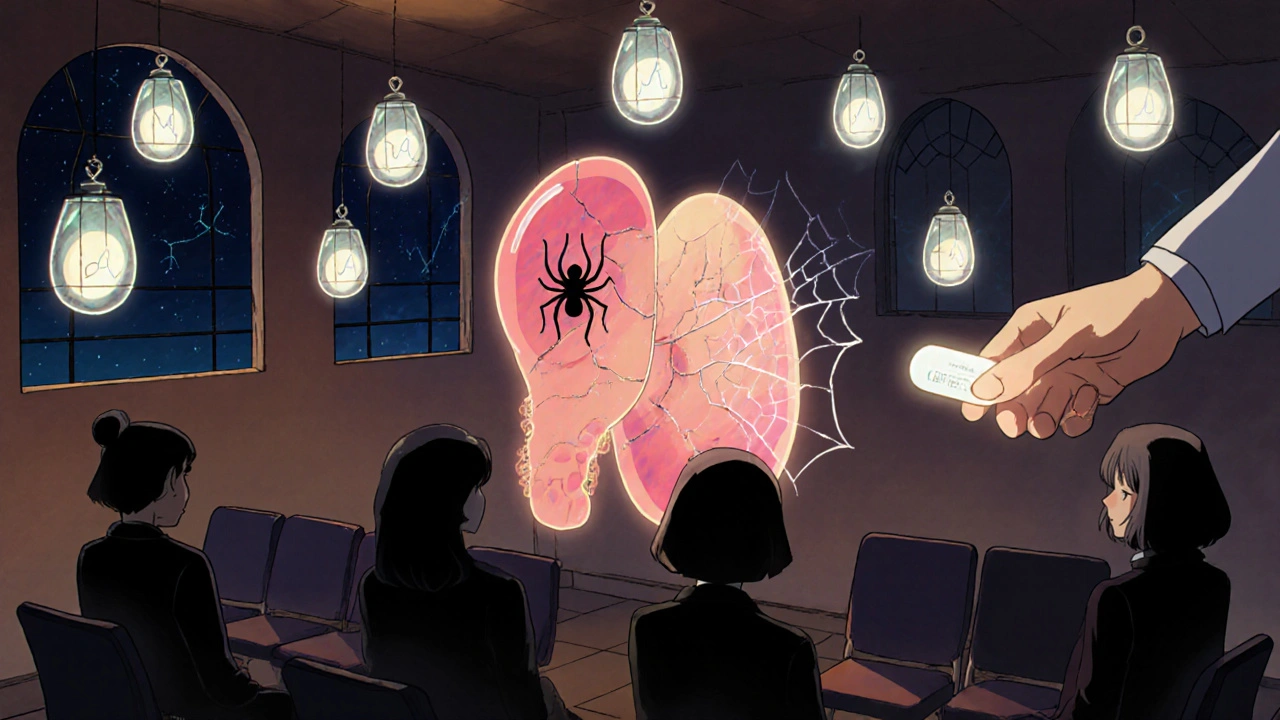
What About Cost and Accessibility?
Levothyroxine costs less than a cup of coffee a week. A single miscarriage, by contrast, can cost over $7,000 in medical care, lost wages, and emotional toll. One study showed that screening and treating thyroid issues before pregnancy saves $1,850-$2,400 per pregnancy by preventing complications. That’s not just money - it’s peace of mind. Yet many women still don’t get tested. Why? Because guidelines aren’t uniform. The American College of Obstetricians and Gynecologists (ACOG) doesn’t recommend universal screening - only testing if you have symptoms or risk factors. But fertility clinics and endocrinologists know better. They test everyone. And with good reason: about 15-20% of women seeking help for infertility have abnormal TSH levels. That’s one in five. And thyroid autoimmunity? It’s twice as common in infertile women as in the general population.What’s Next? The Future of TSH Targets
New research is changing the game. The European Thyroid Association now recommends even lower targets in early pregnancy: under 1.8 mIU/L in the first 4 weeks, rising slightly as pregnancy progresses. Why? Because the embryo’s brain development starts immediately after conception - before most women even know they’re pregnant. Your thyroid has to be perfect before you even miss your period. A major NIH-funded trial (NCT03856002) is currently testing whether personalized TSH targets - based on your antibody status and thyroid reserve - work better than the one-size-fits-all 2.5 target. Results are expected in late 2024. Until then, stick with the safest, most proven advice: get your TSH below 2.5 before you try. If you have Hashimoto’s, aim for 1.25-1.75.What You Can Do Right Now
If you’re planning a pregnancy, here’s your simple checklist:- Ask your doctor for a TSH blood test - don’t wait for symptoms.
- If you have a history of thyroid disease, ask for thyroid antibody tests (TPOAb, TgAb).
- If your TSH is above 2.5, see an endocrinologist or reproductive specialist.
- If you’re on levothyroxine, get your TSH checked every 4-6 weeks before conception.
- Take your thyroid pill on an empty stomach with water, 30-60 minutes before breakfast.
- Avoid calcium, iron, or prenatal vitamins within 4 hours of your thyroid pill.
- Once pregnant, tell your doctor immediately - your dose will need to go up.
Thyroid health isn’t just about energy or weight. It’s about your ability to carry a healthy baby. It’s one of the easiest, cheapest, and most effective ways to improve your chances of a successful pregnancy. Don’t wait for failure. Test early. Treat smart. And give your future child the best possible start.
Can a high TSH level prevent me from getting pregnant?
Yes, a TSH level above 2.5 mIU/L can make it harder to get pregnant, even if you’re otherwise healthy. High TSH often means your thyroid isn’t producing enough hormone, which can disrupt ovulation and the hormonal balance needed for conception. Studies show women with unexplained infertility are nearly twice as likely to have TSH levels above 2.5 compared to women who conceive easily.
Is TSH testing covered by insurance?
Most insurance plans in the U.S. cover TSH testing, especially if you’re undergoing fertility evaluation or have symptoms like irregular periods, fatigue, or weight gain. If you’re not in a fertility program, you may need a doctor’s note or to meet specific criteria. Many clinics offer discounted lab rates - ask your provider.
How long does it take to lower TSH with levothyroxine?
It takes about 4 to 6 weeks for your body to fully adjust to a new levothyroxine dose. That’s why doctors test TSH every 4-6 weeks during preconception. Don’t change your dose on your own - wait for the blood test results. Even small changes (12.5-25 mcg) can make a big difference.
Should I stop taking levothyroxine if I’m not trying to get pregnant right now?
No. If you’ve been prescribed levothyroxine for hypothyroidism, you should continue taking it even if you’re not actively trying to conceive. Stopping can cause your TSH to rise again, which increases your risk of infertility, miscarriage, or complications if you become pregnant unexpectedly. Keep your thyroid stable - it’s good for your overall health and future fertility.
Can I get pregnant with a TSH of 3.0 or 4.0?
Yes, you can - but your risk of miscarriage, preterm birth, and developmental issues in the baby goes up. A TSH of 3.0-4.0 is still considered "subclinical hypothyroidism" and is linked to poorer pregnancy outcomes. While some women conceive without issue, the evidence strongly supports lowering TSH to under 2.5 before conception to reduce those risks. Think of it like checking your blood pressure before pregnancy - you don’t wait until something goes wrong.
What if my TSH is normal but I have thyroid antibodies?
Even with normal TSH, thyroid antibodies (like TPOAb) mean your immune system is attacking your thyroid. This increases your risk of miscarriage by about 50%, even if your hormone levels look fine. Studies show that treating these women with low-dose levothyroxine can reduce miscarriage risk by 45% and improve live birth rates. Ask your doctor to test for antibodies if you’re having trouble conceiving or have a history of pregnancy loss.



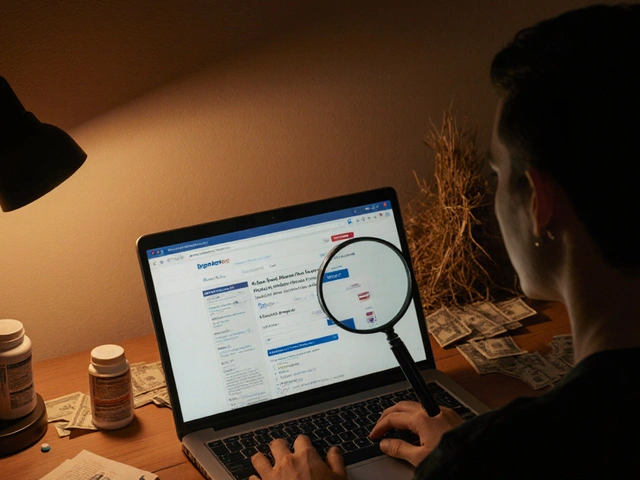
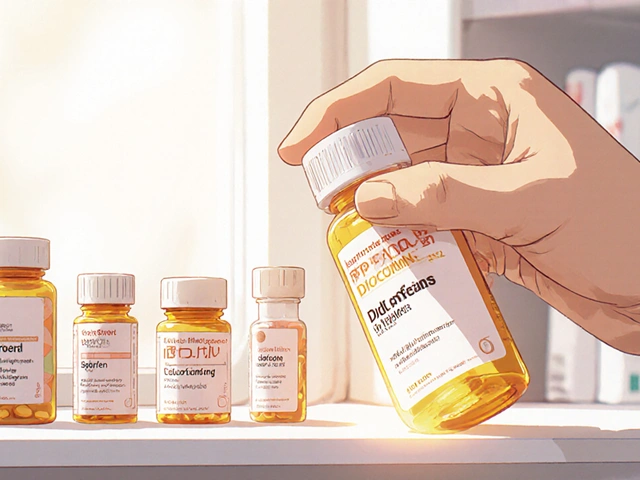
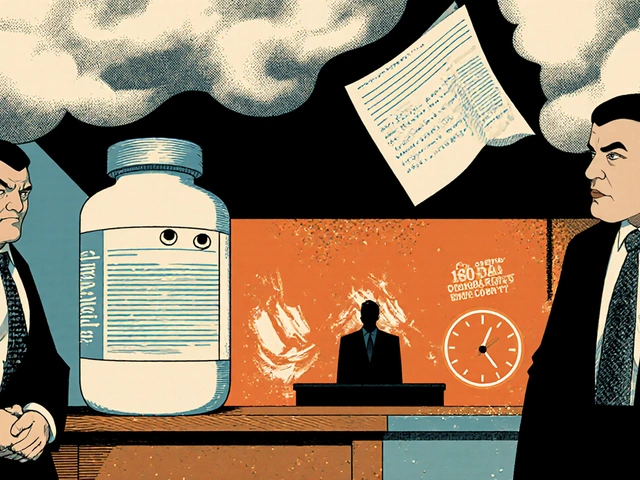

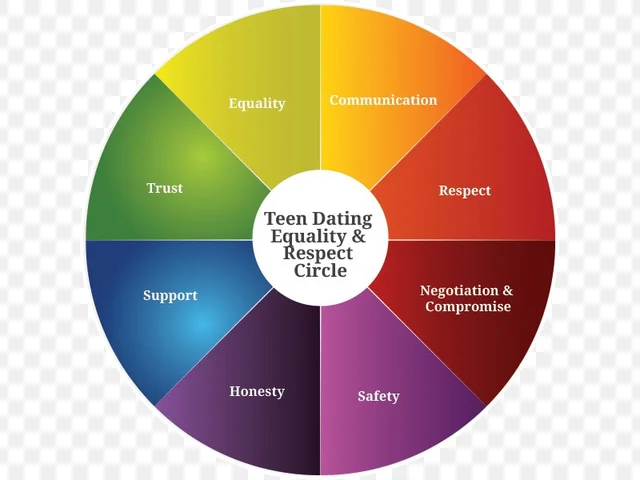

I literally cried reading this. I had 3 miscarriages before I got my TSH checked. It was 4.1. They told me it was "just bad luck." 😭 Now I’m 20 weeks pregnant with my first surviving baby and my TSH is 1.3. I wish I’d known this 3 years ago. Thank you for putting this out there.
Let me guess - you’re one of those people who thinks Big Pharma is pushing levothyroxine to keep women dependent. The truth? TSH isn’t even a real marker. It’s all just lab noise. I’ve seen women with TSH 5.0 get pregnant on their first try. The real issue? Stress. And gluten. And EMFs. You’re being manipulated by the endocrine-industrial complex.
So… you’re saying… if I don’t take a pill… I might… not… get… pregnant…? Or… I might… miscarry…? And… this… costs… $4… a month…? I’m confused. Why isn’t this on every OB’s checklist? Why do I have to Google this at 2 a.m. while crying over my period app?
Ugh. Another ‘you’re not trying hard enough’ article. My TSH was 2.8 and I got pregnant in 2 months. So what? You’re just scaring women into taking pills they don’t need. Also, ‘levothyroxine is cheap’? Have you seen the price in 2024? It’s $120 now. Lol.
I got pregnant with a TSH of 3.5. No pills. No drama. Just chill. Maybe your body knows what it's doing.
OMG. This. This is the post I needed 5 years ago. I had 2 losses, felt fine, thought I was just "bad luck." Then I got my antibodies tested - TPOAb was through the roof. Started levothyroxine at 1.75 target. Got pregnant 3 months later. Now my 1-year-old is thriving. Please, if you’re trying - get tested. It’s not your fault. It’s not stress. It’s not your age. It’s your thyroid. And it’s fixable 💕
As someone who’s helped 30+ women in India navigate this exact issue - I can tell you, this is gospel. Many think thyroid is a "Western problem." Nope. It’s everywhere. Poor diet, iodine deficiency, stress - all contribute. And yes, levothyroxine is a miracle. I’ve seen women who couldn’t conceive for 7 years - get pregnant after 3 months of treatment. The cost? Less than a monthly phone bill. The reward? A child. Don’t delay. Test. Treat. Trust the science.
Wait - so if your TSH is above 2.5, you’re a bad mom? What if you can’t afford the test? What if your doctor won’t order it? What if you’re 40 and you’ve been trying for 2 years and now you’re supposed to be perfect? This feels like guilt-tripping with a lab report. Also, why isn’t this in the prenatal pamphlets? Because it’s not profitable. Just saying.
To the person who said they got pregnant with TSH 3.5 - I’m so happy for you. But for every one of you, there are 10 women who had two losses, who cried in the OB’s office, who were told "it’s probably just stress." And then they found out their TPOAb was high. And then they started levothyroxine. And then they had a baby. This isn’t about being perfect. It’s about giving yourself the best shot. And if you’re reading this - you’re already trying so hard. You’re not failing. You’re fighting.
Thyroid? Nah. I think it’s all the fluoride in the water. And the 5G towers. My cousin’s friend’s sister had TSH 4.2 and got preggo on her first try. She just drank lemon water and did yoga. So yeah. I’m not taking pills. I’m trusting nature. 🌿
Y’all. I’m a Black woman from Atlanta. I never even knew thyroid could affect fertility. My OB never mentioned it. My mom never mentioned it. We just thought infertility was something that happened to "other people." I got tested because I read this post. My TSH was 3.1. My doctor laughed. I insisted. Now I’m on levothyroxine. And I’m not giving up. This is for my future baby. And for all the girls who don’t know this yet. You deserve to know.
This is a scam. The real reason women can’t conceive is because they’re too fat, too stressed, and too obsessed with control. Your thyroid is fine. Your mindset is broken. Stop taking pills. Start lifting weights. Eat real food. Sleep. And stop Googling everything. You’re not broken. You’re just weak.